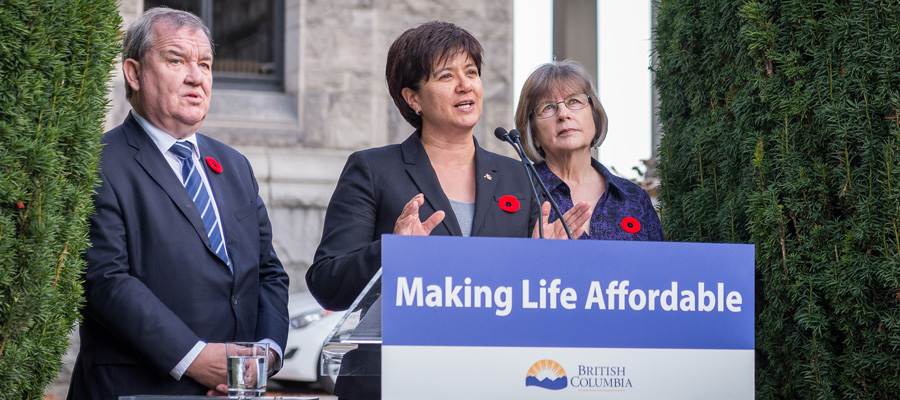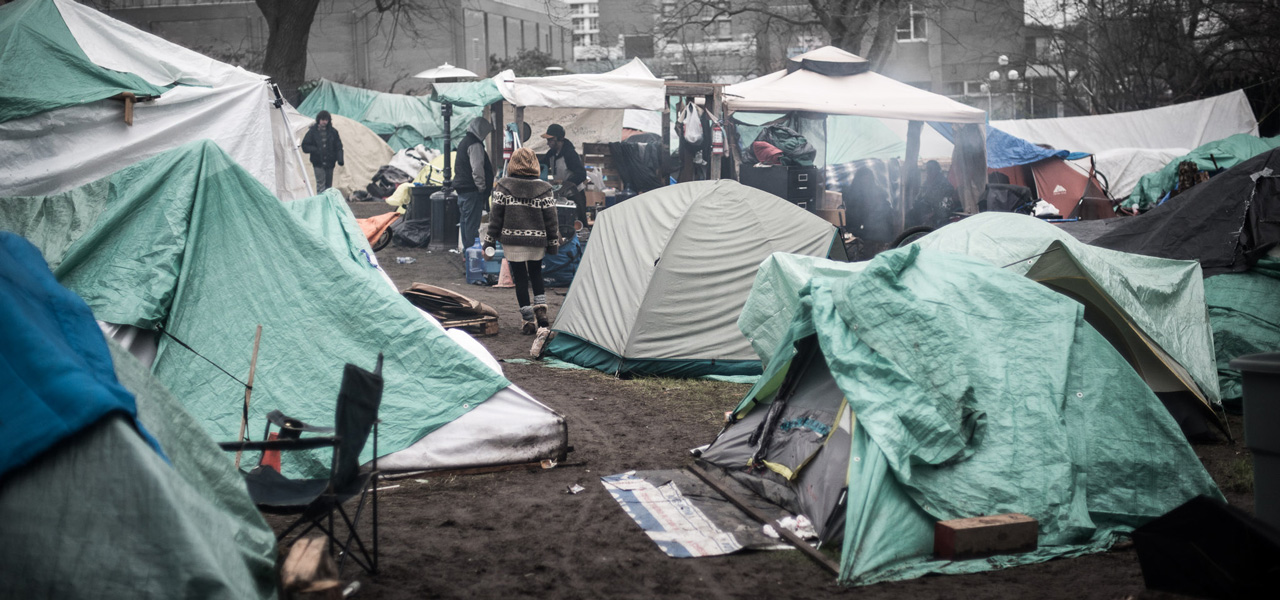Seven immediate steps to reduce poverty while the government consults on a comprehensive poverty reduction plan

Earlier this week, the BC government appointed an Advisory Forum on Poverty Reduction to provide expertise and assistance to the Minster of Social Development and Poverty Reduction in the development of a comprehensive poverty reduction strategy for BC. The 27 people named to the Forum represent communities across the province and bring diverse skills, perspectives and lived experience to their task. Their appointment signals the government’s commitment to meaningfully engage with the broader community, particularly from those most affected by poverty. This is a welcome step, and is indeed essential for the development of a robust poverty reduction plan.
The need is clear: tolerating high rates of poverty and homelessness is unfair and unnecessary in a wealthy country like Canada. However, fulsome public consultations will be a long process. Urgent actions need not wait. Our 2008 report A Poverty Reduction Plan for BC outlines a comprehensive set of recommendations for immediate actions that policy-makers can draw on. Here are seven key policy changes the BC government can make in Budget 2018 to quickly and significantly improve the lives of low-income British Columbians and that are vital to create a path out of poverty.
The need is clear: tolerating high rates of poverty and homelessness is unfair and unnecessary in a wealthy country like Canada—and urgent actions need not wait.
1. Immediately increase income assistance and disability rates by $200 to $400 a month depending on family size. In its first week in office, the new government announced a $100 per month increase in welfare rates (breaking a 10-year freeze). However, welfare rates remain thousands of dollars below the poverty line and fail to meet the actual costs of living in BC. The Welfare Food Challenge is shining a light on this very issue this week with participants documenting their struggles to eat on a budget of $19 per week—what is left from the monthly welfare payment of $710 after subtracting a very basic rental amount. In the longer term, income assistance rates must be set at a level that meets actual costs of living in this province and be indexed to inflation.
2. Remove arbitrary barriers that discourage and delay applications for income assistance. BC must ensure that income assistance can be accessed by those who need it. The onerous online application process must be streamlined and the application form made available in languages other than English. Wait times on BC’s welfare phone line must be reduced by properly staffing the Ministry’s call centre. The welfare system must also do a better job of appropriately categorizing people with disabilities into the PWD category in a timely manner, ensuring people get the additional benefits to which they are entitled.
3. Permit income assistance recipients to receive benefits while enrolled in post-secondary education programs. This would allow recipients to upgrade their education and transition to paid work.
4. Expedite the implementation of recommendations that emerge from the newly launched Fair Wages Commission.
5. Proactively enforce the Employment Standards Act. This will require additional funding for the Employment Standards Branch of the Ministry of Labour to increase the number of employment standards officers. It will also require eliminating the “self-help” kit so that vulnerable workers can more readily report workplace violations and access the earnings to which they are entitled. The BC government must fund a fulsome public consultation process to review employment standards so that worker protections in BC’s changing workplace are improved.
The current review of BC’s Employment Standards undertaken by the BC Law Institute is dramatically under-resourced for the task at hand, which is the reason it has taken so long to produce a report. In contrast, the the Ontario’s Changing Workplaces Review, which was convened in February 2015 just one month prior to the BC review, has already completed its work producing a 419-page final report in May 2017, while the BC review is yet to produce any reports or begin public consultation as of the time of writing.
We all pay for the negative consequences of poverty and homelessness.
6. Immediately increase the availability of post-secondary grants for low-income students.
7. Move forward with bold investments in child care and affordable housing. These will also double as poverty reduction measures.
Other priority actions include adequately funding mental health and addictions services so they are accessible to British Columbians who need them, boosting child protection services, and enhancing seniors’ community care services. Gaps in the accessibility of these key public programs put pressure on the most expensive component of the health care system—emergency rooms and hospitals—costing us more in the long term.
Many of the policy changes we propose would boost the incomes of those at the bottom of the income ladder who spend all their income purchasing goods and services because they don’t have the luxury of saving. Most of these expenditures occur in local communities, and thus, would provide a much stronger boost to the local economy than personal or corporate tax cuts.
While consulting widely on a full poverty reduction plan is welcome, it is unreasonable and unacceptable to ask British Columbians living in poverty to wait any longer when the need is clear. We all pay for the negative consequences of poverty and homelessness. CCPA research shows that poverty costs BC between $8.1 and $9.2 billion annually in higher costs to the criminal justice system, in lost productivity, lower school success, and higher health costs. A fulsome public consultation should not stand in the way of taking immediate actions to improve people’s lives.
Topics: Education, Employment & labour, Poverty, inequality & welfare, Provincial budget & finance



